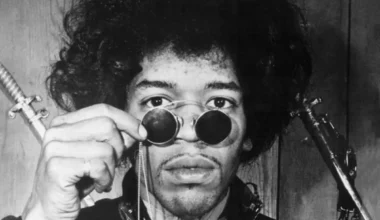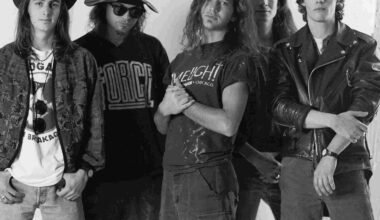John Lydon is often associated with punk, best known as Johnny Rotten, the outspoken and controversial frontman of the Sex Pistols. Leading the band, he ignited a musical revolution in the UK, becoming the voice of a rebellious generation. However, Lydon’s musical tastes have always extended beyond the punk genre, into neighboring worlds that were also thriving in the 1970s.
In the mid to late 1970s, the music scene in the UK was in a transitional phase. The flower power and peace movement of the 1960s had faded, and the long-standing battle between mods and rockers had come to a ceasefire. In this vacuum, new subcultures emerged.
Lydon and the Sex Pistols helped spearhead one such movement, punk, with each furious gig fanning the flames. As their chaotic anthems played, young people ripped their clothes, pieced them back together with safety pins, spiked their hair, and covered themselves in piercings. These punks poured into clubs and shows, creating a scene that was just as loud and unruly as the music they loved.
At the same time, in nearby venues, another crowd was forming—the New Romantics. This group embraced a more refined, avant-garde style, with elaborate makeup, eccentric costumes, and music that blended synth-pop, krautrock, and the emerging post-punk sound.
The contrast between the punk and New Romantic scenes was stark, and by most accounts, Lydon should’ve hated them. But his appreciation for one particular artist shattered any notion that his taste was confined to punk’s anarchic boundaries: Lydon admired Bryan Ferry.
Ferry and his band, Roxy Music, had burst onto the scene in the early 1970s, blending glam rock with experimental synths, courtesy of Brian Eno. While the Sex Pistols were causing chaos with their raw aggression, Roxy Music was creating something just as innovative, but more polished and avant-garde.
What Lydon loved most wasn’t just Roxy Music’s trailblazing sound, but the darkness Ferry explored in his songwriting. One song in particular, “In Every Dream Home A Heartache,” captured Lydon’s attention.
“It’s about a love affair with a blow-up doll,” Lydon said, appreciating the song for its unsettling subject matter. “It reveals a corner of your psyche that not many people would like to admit exists. The mind wanders into dark places, and the body follows. It’s a romantic delusion, and it’s fascinating material for a song.”
In this way, Lydon found a surprising kinship with Ferry. Though their music differed drastically, both artists weren’t afraid to tackle uncomfortable or taboo subjects in their lyrics.
Lydon respected Ferry’s ability to couch these explorations in a stylish, almost aristocratic guise. “I get what Bryan Ferry is trying to do,” Lydon said. “Experimenting in a bizarre world and then couching what he finds in the style and language of the hunting set.”
Lydon didn’t stop there in his praise, acknowledging Ferry as an original artist, unlike anyone else. “It’s an exotic, intriguing concept,” he said, “and he’s the only one doing it.”







